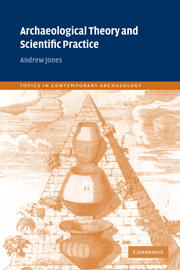Book contents
- Frontmatter
- Contents
- List of illustrations
- List of tables
- Preface
- Acknowledgements
- 1 The archaeology of ‘two cultures’
- 2 Science as culture: creating interpretative networks
- 3 Archaeology observed
- 4 Materials science and material culture: practice, scale and narrative
- 5 Material culture and materials science: a biography of things
- 6 A biography of ceramics in Neolithic Orkney
- 7 Making people and things in the Neolithic: pots, food and history
- 8 Before and after science
- References
- Index
5 - Material culture and materials science: a biography of things
Published online by Cambridge University Press: 06 November 2009
- Frontmatter
- Contents
- List of illustrations
- List of tables
- Preface
- Acknowledgements
- 1 The archaeology of ‘two cultures’
- 2 Science as culture: creating interpretative networks
- 3 Archaeology observed
- 4 Materials science and material culture: practice, scale and narrative
- 5 Material culture and materials science: a biography of things
- 6 A biography of ceramics in Neolithic Orkney
- 7 Making people and things in the Neolithic: pots, food and history
- 8 Before and after science
- References
- Index
Summary
Introducing a biographical perspective
One of the major points to emerge from our discussion of scales of analysis is that modes of analysis that only attend to large-scale structures have little to tell us about how people lived and structured their lives on a daily basis. In order to understand these issues, we have to consider temporal and spatial scales of a more limited nature and duration, and work from these to consider how activities performed at these smaller scales transform larger-scale structures. What we are interested in, then, is how material culture is used to create and maintain meaningful social relations, relations that affirm the definition of identity and belonging at individual, local and wider scales.
One scale of analysis that provides a useful starting point is the human life span (Gilchrist 2000, 325). The narrative structure of human life cycles provides an extremely broad framework determined by biographically important events such as birth, life and death by which people make sense of their lives. Much of the literature concerning the way in which artefacts are invested with meaning focuses on their biographical relationship to human beings.
The notion of biography has arisen out of our understanding of the perception of objects in gift-based economies (see Mauss 1925 for his classic delineation of the notion of ‘the gift’). Gifts, unlike commodities, are exchanged as a means of establishing relationships between people.
- Type
- Chapter
- Information
- Archaeological Theory and Scientific Practice , pp. 83 - 102Publisher: Cambridge University PressPrint publication year: 2001



